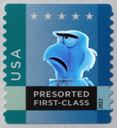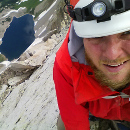weight loss and climbing pace
Forum rules
- This is a mountaineering forum, so please keep your posts on-topic. Posts do not all have to be related to the 14ers but should at least be mountaineering-related.
- Personal attacks and confrontational behavior will result in removal from the forum at the discretion of the administrators.
- Do not use this forum to advertise, sell photos or other products or promote a commercial website.
- Posts will be removed at the discretion of the site administrator or moderator(s), including: Troll posts, posts pushing political views or religious beliefs, and posts with the purpose of instigating conflict within the forum.
-
Rollie Free

- Posts: 454
- Joined: 6/8/2012
- 14ers: 45
- Trip Reports (0)
Re: weight loss and climbing pace
I would agree with Hjelmstadlt and others, it probably isn't the more weight lost the better. There are tradeoffs either way. I have been experimenting with this for several years. I am 'normally' about 230+ and train in a powerlifting mode in the fall and winter. In spring I turn to more aerobic (running(ugh), speed walking, stair climbing etc.) and go down to 195-200 lbs. I wish I could say I have really learned a lot through this but I can't give clear answers on anything. I am an out of state flatlander so I am bound to create climbing hardship instead of just being able to do it. Sometimes when I come out and climb I feel good and other times I really struggle and can't begin to pinpoint why. I am trying for more variable training this spring. Instead of drawn out aerobic work, which I mentally struggle with, I am doing more high intensity internal training to see if that brings about any improvement.
"Quicker than I can tell it, my hands failed to hold, my feet slipped, and down I went with almost an arrow’s rapidity. An eternity of thought, of life, of death, wife, and home concentrated on my mind in those two seconds. Fortunately for me, I threw my right arm around a projecting boulder which stood above the icy plain some two or three feet." Rev. Elijah Lamb
-
justiner

- Posts: 4696
- Joined: 8/28/2010
- 14ers: 3 1
- Trip Reports (37)
Re: weight loss and climbing pace
Drastic weight loss to achieve performance goals is a pretty dangerous game to play. Think of losing a few lbs as perhaps a final polish towards a performance goal (race, whatever), rather than something you should put front and center. Fat loss before that is a premature optimization.
The training (which would include a proper diet) should have a very large effect on your body composition - the closer you come to training like an elite athlete, the more you're going to look like one in your chosen field. For the vast majority of us somewhere in the, "extreme enthusiast" bell curve (middle), we won't look like we're running a sub 2:30 marathon.
The training (which would include a proper diet) should have a very large effect on your body composition - the closer you come to training like an elite athlete, the more you're going to look like one in your chosen field. For the vast majority of us somewhere in the, "extreme enthusiast" bell curve (middle), we won't look like we're running a sub 2:30 marathon.
Long May You Range! Purveyors of fine bespoke adventures
-
polar

- Posts: 1250
- Joined: 8/12/2013
- 14ers: 2
- Trip Reports (1)
Re: weight loss and climbing pace
We're usually curved in the middle in more than one ways.
"Getting to the bottom, OPTIONAL. Getting to the top, MANDATORY!" - The Wisest Trail Sign
-
CorduroyCalves
- Posts: 1909
- Joined: 4/10/2006
- 14ers: 16
- 13ers: 1
- Trip Reports (0)
Re: weight loss and climbing pace
Thanks. Not judging, just curious what you were eating. In my experience, diet is more important than exercise when it comes to health. Even if I go into a lull with working out, I still feel good if I’ve been eating the right food.LarryM wrote: ↑Mon Apr 01, 2019 9:20 amProblematic. Not meals so much, they tend to be pretty balanced (mostly vegetarian but ample protein despite that), but way too much snacking. That's my problem in a nutshell; that's why, despite a good metabolism and plenty of exercise I need to drop a few pounds.
Last edited by CorduroyCalves on Mon Apr 01, 2019 1:02 pm, edited 1 time in total.
Life is too short to pay full retail for outdoor gear!
"God has cared for these trees, saved them from draught, disease, avalanches, and a thousand straining, leveling tempasts and floods; but he cannot save them from fools; only Uncle Sam can do that."--John Muir
"God has cared for these trees, saved them from draught, disease, avalanches, and a thousand straining, leveling tempasts and floods; but he cannot save them from fools; only Uncle Sam can do that."--John Muir
-
12ersRule

- Posts: 2303
- Joined: 6/18/2007
- 14ers: 58
- 13ers: 160
- Trip Reports (4)
Re: weight loss and climbing pace
I tend to gain weight when training heavily for something big. It sucks.
Re: weight loss and climbing pace
I would think increasing your strength to weight ratio would be a better goal than simply weight loss if you are striving to increase your uphill speed. I would use body fat percentile along with overall weight as a measure. As a lighter cyclist, I have always been able to hammer uphill for longer stretches of time but I have had much less advantage on the flats. I would say I've noticed the same trend in hiking uphill. My short legs are less of a disadvantage in steeper terrain and my higher strength to weight ratio kicks in as an advantage. However, I'm not very fast on lower angle approaches but that's because I'm vertically challenged and hike with tall people a lot. At the same time, I'm also at a huge disadvantage when it comes to carrying heavy loads (40 lbs is a full 1/3 of my weight). Simply losing lbs would likely not result in increased speed for me. Also, I have found that dropping below a certain body fat percentile results in decreased performance and insatiable hunger. There seems to be a sweet spot and I would imagine that's going to be different for everyone. I also agree that how you fuel and recover after a big day are going to be huge factors.
“Climb mountains not so the world can see you, but so you can see the world.” -David McCullough?
-
timisimaginary
- Posts: 777
- Joined: 11/19/2017
- 14ers: 3
- 13ers: 1
- Trip Reports (2)
Re: weight loss and climbing pace
like a lot of people i would guess, i hike/run/train/etc. to lose or keep my weight down, rather than the other way. i typically put on a little extra during the winter and then work during the spring/summer/fall to take it back off. i'm probably not alone there.
there are so many factors in how it affects your speed, i doubt there's any formula that can directly equate weight loss to speed gain. if i work out all winter long, with an extra 10-15 pounds on my frame, it will make me stronger, and smart training (not losing more than 1 lb. per week, for example) should ideally allow one to keep their strength while losing the weight, though there's obviously a point at which any weight loss is bound to come with reduction in strength. where that is will be different for different people. but again, the other factors are impossible to remove from the equation. even for running, for example, you could gain weight but at the same time, if you're able to improve your running economy, you could still get faster even at a higher weight. last year, i ran a 5K during the summer and set a new PR, weighing around 164 or so. i was able to keep training fairly consistently this winter, and started 10K training in february. when i ran another 5K mid-march, this time at 172, i beat my previous PR by almost 30 seconds. who knows how much faster i would have been if i was still at 164, but obviously i was still able to improve even with the weight gain (and it was not 8lbs of extra muscle, i can assure you).
there are so many factors in how it affects your speed, i doubt there's any formula that can directly equate weight loss to speed gain. if i work out all winter long, with an extra 10-15 pounds on my frame, it will make me stronger, and smart training (not losing more than 1 lb. per week, for example) should ideally allow one to keep their strength while losing the weight, though there's obviously a point at which any weight loss is bound to come with reduction in strength. where that is will be different for different people. but again, the other factors are impossible to remove from the equation. even for running, for example, you could gain weight but at the same time, if you're able to improve your running economy, you could still get faster even at a higher weight. last year, i ran a 5K during the summer and set a new PR, weighing around 164 or so. i was able to keep training fairly consistently this winter, and started 10K training in february. when i ran another 5K mid-march, this time at 172, i beat my previous PR by almost 30 seconds. who knows how much faster i would have been if i was still at 164, but obviously i was still able to improve even with the weight gain (and it was not 8lbs of extra muscle, i can assure you).
"The decay and disintegration of this culture is astonishingly amusing if you're emotionally detached from it." - George Carlin
-
JaredJohnson

- Posts: 416
- Joined: 8/27/2014
- 14ers: 28 5
- 13ers: 13
- Trip Reports (3)
Re: weight loss and climbing pace
From the perspective of someone who has been a dedicated "obese" mountaineer and is now only "overweight" according to BMI, bodyweight is so much more of a factor that it might as well be the only factor. When I was in the range of 245-265, training hard maybe shaved an hour or two off my best 14er RT times, from 12-14hr to 10-12hr. At the end of winter at 205lbs. I did Lincoln from mineral park in 5.25hr RT. that's not a long route, but it was almost all breaking trail in snowshoes; I felt fantastic the whole time instead of being almost sick (I did 2.5hr of night skiing that evening); and the previous year I took twice as long to do Bross from Moose Creek, a very similar route with similar conditions and distance.
Obviously if you aren't carrying around a spare tire and you're talking about a couple or lbs. it's a whole different story
Obviously if you aren't carrying around a spare tire and you're talking about a couple or lbs. it's a whole different story
-
nunns
- Posts: 1386
- Joined: 8/17/2018
- 14ers: 43
- 13ers: 5
- Trip Reports (0)
Re: weight loss and climbing pace
I have never been "large" but I can tell you that even for a lightweight, losing a few pounds really helps in a hilly road race. (I used to run the Hospital Hill 1/2 marathon every spring in KC, and I would always try to lose 5 pounds the month or so before the race.) So I would imagine that it would help even more in climbing, where the average grades are much higher than they are in just about any road race. I guess the only caveat is that when you are climbing steep sections where you need to take really big "steps" then it is good to have strong glutes and quads to take those big "steps". Weight on the end of the lever makes more difference than weight on the "body", so lightweight trail shoes that weigh say 2 pounds less than heavy boots make as much difference as like 20 pounds on the torso or in the pack.
Sean Nunn
Sean Nunn
"Thy righteousness is like the great mountains." --Psalms 36:6
Re: weight loss and climbing pace
I think exactly how much footwear weight correlates to torso weight is still up for debate, but I'm a firm believer foot weight counts for more.
I figure if I wear a shoe that weighs just one once more than another shoe, every sixteen steps I take I've moved an extra pound compared to the lighter shoes. Again, how significant that is in the grand scheme of things could be argued...but it's not nothing.
The only time I lower the bar is après
-
timisimaginary
- Posts: 777
- Joined: 11/19/2017
- 14ers: 3
- 13ers: 1
- Trip Reports (2)
Re: weight loss and climbing pace
yes, it's definitely a different calculation if you're carrying more bodyweight (i've never been "obese" by BMI standards (which are kinda bogus anyway, if they don't take into account body composition), but i've gotten pretty close). an obese person can easily lose 5 lbs a week, for several weeks, with no loss in strength or power, because it will be all fat loss (assuming they're doing the right trainng to maintain muscle mass while losing weight). fat is just dead weight, it does nothing but slow you down. but as you get into the more "normal" range, it's almost impossible to keep losing without losing some muscle mass as well, and that's where the power loss is going to come from. just one more reason why it's so difficult to come up with an accurate formula relating weight loss to speed. at 5'9, a 250-lb person losing 10 lbs may see more speed gain than a 160-lb person (even though it's a smaller percentage weight loss overall), and a 140-lb person losing that much weight might actually slow down instead. you'd first have to figure out an "ideal" weight where any change in weight, up or down, will slow you down, and it's going to be different for everyone accounting for all the other factors that figure into fitness and speed. just figuring out your own "ideal" weight is challenge enough for most of us.JaredJohnson wrote: ↑Thu Apr 11, 2019 8:03 am From the perspective of someone who has been a dedicated "obese" mountaineer and is now only "overweight" according to BMI, bodyweight is so much more of a factor that it might as well be the only factor. When I was in the range of 245-265, training hard maybe shaved an hour or two off my best 14er RT times, from 12-14hr to 10-12hr. At the end of winter at 205lbs. I did Lincoln from mineral park in 5.25hr RT. that's not a long route, but it was almost all breaking trail in snowshoes; I felt fantastic the whole time instead of being almost sick (I did 2.5hr of night skiing that evening); and the previous year I took twice as long to do Bross from Moose Creek, a very similar route with similar conditions and distance.
Obviously if you aren't carrying around a spare tire and you're talking about a couple or lbs. it's a whole different story
"The decay and disintegration of this culture is astonishingly amusing if you're emotionally detached from it." - George Carlin
-
DaveLanders
- Posts: 569
- Joined: 3/7/2009
- Trip Reports (0)
Re: weight loss and climbing pace
Another issue with trying to determine an ideal weight is recovery after a big day, or consecutive big days. If you are a weekend warrior, and have all week to recover before the next weekend, then you may be able to maintain good performance at a lighter weight than someone who is planning on a week or more of consecutive 14ers. I personally have never had to worry about getting too skinny, but it would be interesting to hear justiner's or Andrew Hamilton's thoughts on this.
Every village has at least one idiot. Successful villages choose someone else to be their leader.


